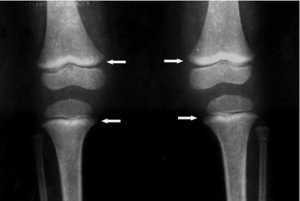Author Interviews, Cannabis, JAMA, Mental Health Research / 22.11.2024
Cannabis Use Worsens Psychosis Risk in Some Young Adults
MedicalResearch.com Interview with:
Belén Blasco
PhD Student in Neuroscience - MD Psychiatry
Clinical and Translational Sciences (CaTS) Lab
Integrated Program in Neuroscience
McGill University | Douglas Research Centre
Montreal, Canada
MedicalResearch.com: What is the background for this study?
Response: Our research is centered on uncovering the early brain changes that might contribute to psychosis development. Using innovative brain imaging techniques, we aimed to measure synapsis in individuals with early psychotic symptoms or who are considered at high clinical risk. Synapses are the crucial points of connection between neurons, allowing communication across the brain. A key aspect of our study was to understand how lifestyle factors, like cannabis use, might impact these brain changes, particularly since cannabis consumption has been associated with an increased risk of developing psychosis in young people. (more…)











 Joanne B. Newbury, PhD
ESRC Postdoctoral Fellow
King’s College London
Social, Genetic & Developmental Psychiatry Centre
Institute of Psychiatry, Psychology & Neuroscience
London, United Kingdom
MedicalResearch.com: What is the background for this study?
Response: Urban living is one of the most well-established risk factors for adult psychotic disorders such as schizophrenia. However, less is known about the role of the urban environment in subclinical psychotic experiences in childhood and adolescence, such as hearing voices and extreme paranoia. These early psychotic experiences are a developmental risk factor for adult psychotic disorders and a range of other serious mental health problems such as depression and anxiety.
It is therefore important that we understand what factors might contribute to the development of early psychotic experiences so that we might be able to intervene and prevent their onset and progression.
In a cohort of over 2000 UK-born children (The Environmental Risk Longitudinal Twin Study), we have previously shown that subclinical psychotic experiences are also around twice as common among children and teenagers raised in urban versus rural settings. We have also shown that this appears to be partly explained by social features in urban neighbourhoods such as higher crime levels and lower levels of social cohesion.
However, no studies have examined the potential link between air pollution and psychotic experiences. This is despite air pollution being a major health problem worldwide (particularly in cities), and despite emerging evidence linking air pollution to the brain.
Joanne B. Newbury, PhD
ESRC Postdoctoral Fellow
King’s College London
Social, Genetic & Developmental Psychiatry Centre
Institute of Psychiatry, Psychology & Neuroscience
London, United Kingdom
MedicalResearch.com: What is the background for this study?
Response: Urban living is one of the most well-established risk factors for adult psychotic disorders such as schizophrenia. However, less is known about the role of the urban environment in subclinical psychotic experiences in childhood and adolescence, such as hearing voices and extreme paranoia. These early psychotic experiences are a developmental risk factor for adult psychotic disorders and a range of other serious mental health problems such as depression and anxiety.
It is therefore important that we understand what factors might contribute to the development of early psychotic experiences so that we might be able to intervene and prevent their onset and progression.
In a cohort of over 2000 UK-born children (The Environmental Risk Longitudinal Twin Study), we have previously shown that subclinical psychotic experiences are also around twice as common among children and teenagers raised in urban versus rural settings. We have also shown that this appears to be partly explained by social features in urban neighbourhoods such as higher crime levels and lower levels of social cohesion.
However, no studies have examined the potential link between air pollution and psychotic experiences. This is despite air pollution being a major health problem worldwide (particularly in cities), and despite emerging evidence linking air pollution to the brain. 
